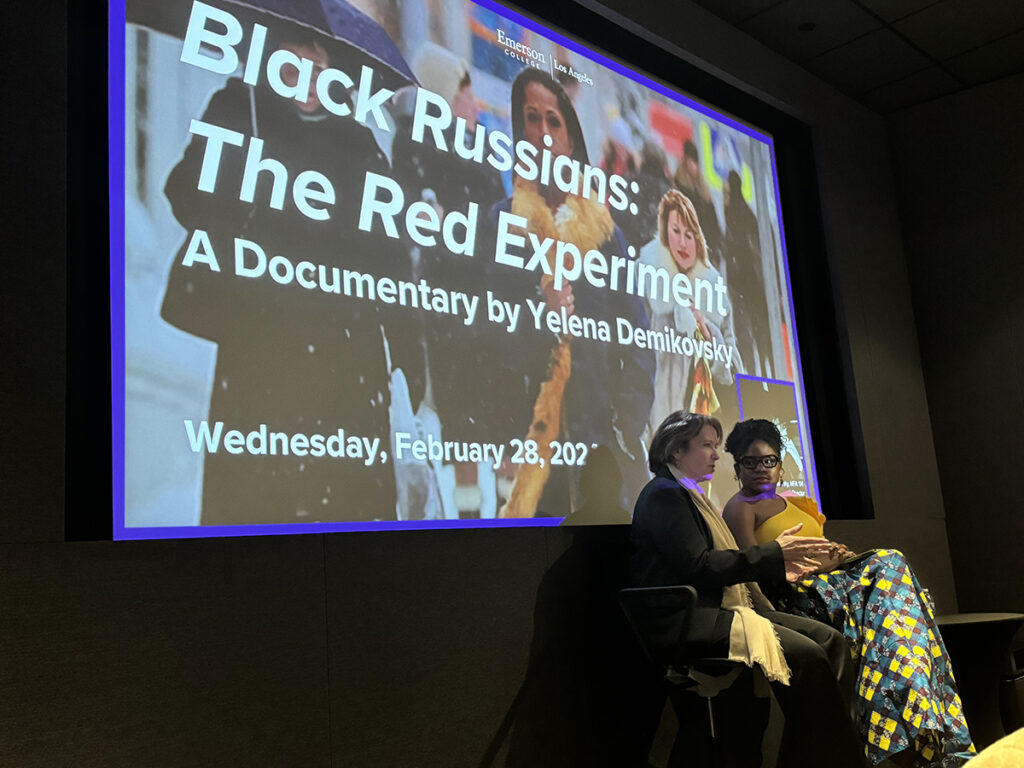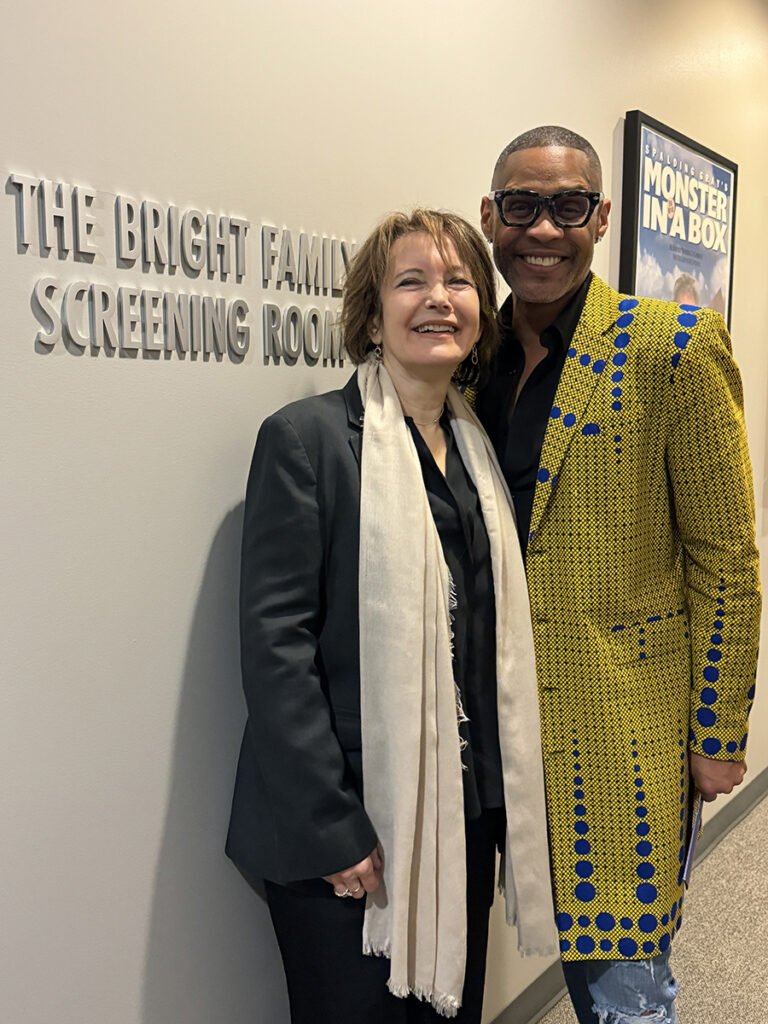Alum’s Doc About ‘Black Russians’ in Soviet Union Resonates Today

The lives of Black Americans in the Soviet Union during the first half of the 20th century—and the parallels between that history and the current day—was one of the themes covered in a screening of the documentary Black Russians: The Red Experiment at Emerson Los Angeles (ELA) on February 28.
“It’s very important to know your own history,” said Yelena Demikovsky, MFA ’04, who directed the documentary. “Knowledge of history enriches your future.”
Tony Pinder, Emerson’s Vice Provost for Internationalization and Equity, kicked off the evening by introducing Demikovsky to the audience of students, alumni, and friends who gathered at ELA for the screening. Pinder’s father is a friend of one of the characters featured in the film. Following the screening, Demikovsky joined actress Trinitee Stokes ’24, who moderated a Q&A.
“I’ve always been a fan of tapping into the undiscovered pieces of history and seeing as it’s Black History Month…I felt this was a really important event for me to be a part of,” said Stokes.
Demikovsky first immigrated to the United States in the early 1990s from the Soviet Union. At Emerson, she learned a lot both in school and outside of the classroom.
“I was learning culture. I was learning language. I was learning video/TV, film production. Everything. It was exciting,” said Demikovsky.

Black Russians was inspired in part by a famous 1936 film that Demikovsky and others in the Soviet Union watched called The Circus. A Soviet musical comedy, the film is about a white American woman who tries to integrate into Soviet culture, but carries the secret of having a Black child.
At a conference Demikovsky attended, she noticed a book by Allison Blakely titled Russia and the Negro. While skimming through the book, she learned that the Black child featured in The Circus was the son of an African American man who came to the Soviet Union in the ’30s. From there, her interest in the subject grew.
“Getting into this subject was difficult,” said Demikovsky, in part because of the sheer amount of historical data involved in the topic of the Black community in Russian history. “I’m drawn to people, more interested in people’s stories.”
Around 10 years ago, she began work on Black Russians. Yelena Khanga, an Afro-Russian TV presenter known as the “Russian Oprah,” is the subject of much of the first part of the documentary. The film blends her personal story with the history of Black Americans who immigrated to the Soviet Union to escape racism and the Jim Crow South.
“The subject matter being relevant today in both America and Russia is something that I feel like people need to hear about,” said Luke Morton, executive producer at Buffalo 8 Productions, who is co-producing the film. “I’m really excited for this project. I feel like we’re going to be doing a lot of great things together.”

Keith Boykin, a producer, political commentator, and author of several books, including the recently released Why Does Everything Have to Be About Race?, was one of the event’s attendees.
“It’s important to draw the community in and to talk about issues that you’re dealing with as a society today from an artistic point of view. Creative arts allow us to explore difficult topics in a way that is often less threatening to people and more empowering in some ways,” said Boykin. “I’m excited that Emerson is facilitating space for this to happen.”
Demikovsky is hoping to gain funding so that she can complete the documentary as well as continue filming and editing subsequent parts.
“These are very rich human stories. Very important stories,” she said.
Aside from wanting viewers of the film to walk away with an understanding that knowledge of history is important, Demikovsky also hopes that the featured subjects in the film inspire others to remain persistent.
“Don’t lose hope and go for your dreams, even though it’s going to be tough. Don’t stop,” she said.
Categories